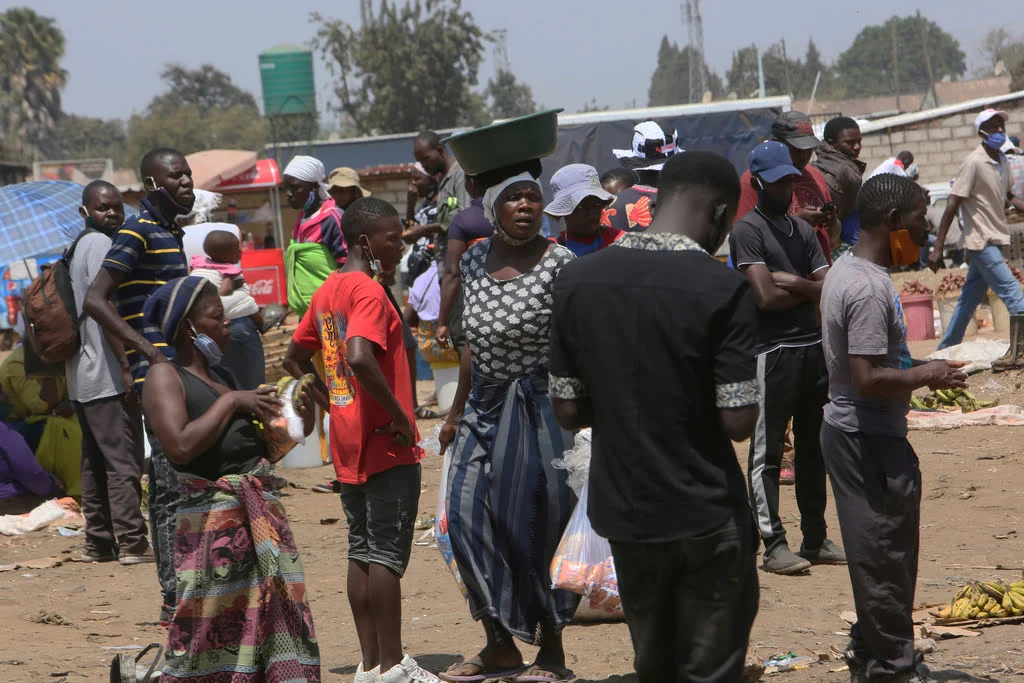News
Virologists Mystified as Africa Avoids COVID-19 Disaster

As Nyasha Ndou crowded around wooden tables and plastic sheeting to buy and sell fruit and vegetables at a busy market outside Harare this week, hundreds of other people, many of them not masked, jostled around him. The COVID-19 Coronavirus has largely disappeared from Zimbabwe, as political rallies, concerts, and family gatherings have returned.
When was the last time you heard of someone dying from COVID-19?COVID-19?COVID-19? Ndou asked. “It’s to protect my pocket,” he replied. I lose money if I don’t wear a mask, so I move around with one.” Zimbabwe recorded 33 new COVID-19 cases earlier this week and zero deaths, in line with a recent decline in the disease throughout Africa, according to World Health Organization data.
It is not yet clear how many people COVID-19 will kill, but that devastating scenario has not yet materialized in Zimbabwe and much of Africa since the first outbreak last year.
Scientists warn that it is extremely difficult to obtain accurate COVID-19 data, particularly in African countries with patchy surveillance, and that declining coronavirus trends could easily be reversed.
“There is a mystery in Africa,” said Wafaa El-Sadr, chair of global health at Columbia University. “Africa does not have vaccines or the resources to fight COVID-19 like Europe and the U.S., yet they have seen this outbreak.”.
Africa has one of the lowest vaccination rates in the world with just 6.6% of the population vaccinated. This has been described by the WHO as “one of the least affected regions in the world” in its weekly pandemic reports.
In addition to their lower rates of urbanization and tendency to spend time outdoors, some researchers believe the continent’s younger population has spared it from the deadly effects of the virus so far.
Approach COVID with more humility
There have been several studies looking into the possibility that there may be other explanations, such as genetics or exposure to other diseases.
According to Christian Happi, director of the African Center of Excellence for Genomics of Infectious Diseases at Redeemer’s University in Nigeria, authorities are used to controlling outbreaks even without vaccines and credited community health workers for their work.
A hospital’s complexity and how much money it has are not the only factors that matter, he said.
“I think there is a different cultural attitude in Africa since these countries have experienced Ebola, polio, and malaria firsthand, so they approach COVID with more humility,” Sridhar noted.
In the past few months, the Coronavirus has devastated South Africa, killing upwards of 89,000 people there, more than anywhere else on the continent.
Currently, African authorities acknowledge there may be gaps, but they are not reporting large numbers of unexpected fatalities attributed to COVID.
Build up COVID immunity
WHO data indicate that death rates in Africa account for just 3% of the global total, while those in the Americas and Europe account for 46% and 29%, respectively. In Nigeria, Africa’s most populous country, nearly 3,000 deaths have been reported among its 200 million residents.
In Abuja, 23-year-old Opemipo Are said she was relieved by the low number. “They predicted dead bodies on the streets, but they didn’t occur,” she said.
Nigerian virologist Oyewale Tomori, a member of several WHO advisory groups, said Africa may not even need as many vaccines as the West. African scientists, he says, are seriously considering such an idea – similar to the proposal British officials made last March to let COVID-19 freely infect the population to build up immunity.
“We need to vaccinate everywhere to prepare for the next wave,” said Salim Abdool Karim, an epidemiologist at KwaZulu-Natal University in South Africa. Karim previously advised the South African government on COVID-19.
Fears of another coronavirus wave
Experts predicted coronavirus outbreaks in conflict-torn Afghanistan would prove disastrous if they occurred. However, their predictions have yielded relatively little impact in poor countries like Afghanistan.
Ashmat Arifi, 23, a student in Kabul, said he had not seen anyone wearing a mask in months, and more than 20 students forcibly sat unmasked in his classes.
“I haven’t seen any cases of corona lately,” Arifi said. So far, Afghanistan has recorded about 7,200 deaths among its 39 million people, although little testing was done amid the conflict and the actual numbers of cases and deaths are unknown.
Back in Zimbabwe, doctors were grateful for the respite from COVID-19 — but feared it was only temporary.
“People should remain very vigilant,” warned Dr. Johannes Marisa, president of the Medical and Dental Private Practitioners of Zimbabwe Association. He fears that another coronavirus wave would hit Zimbabwe next month. “Complacency is what is going to destroy us because we may be caught unaware.”






























